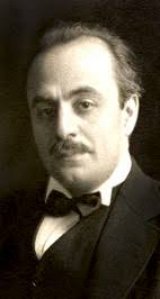On Laws
Kahlil Gibran 1883 (Bsharri, Mount Lebanon Mutasarrifate) – 1931 ( New York City)
Then the lawyer said, But what of our Laws, master?
And he answered;
You delight in laying down laws,
Yet you delight more in breaking them.
Like children playing by the ocean who build sand-towers with constancy and then destroy them with laughter.
But while you build your sand-towers the ocean brings more sand to the shore,
And when you destroy them the ocean laughs with you.
Verily the ocean laughs always with the innocent.
But what of those to whom life is not an ocean, and man-made laws are not sand-towers,
But to whom life is a rock, and the law a chisel with which they would carve it in their own likeness?
What of the cripple who hates dancers?
What of the ox who loves his yoke and deems the elk and deer and the forest stray and vagrant things?
What of the old serpent who cannot shed his skin, and calls all others naked and shameless?
And of him who comes early to the wedding-feast, and when over-fed and tired goes his way saying that all feasts are violation and all feasters lawbreakers?
What shall I say of these save that they too stand in the sunlight, but with their backs to the sun?
They see only their shadows, and their shadows are their laws.
And what is the sun to them but a caster of shadows?
And what is it to acknowledge the laws but to stoop down and trace their shadows upon the earth?
But you who walk facing the sun, what images drawn on the earth can hold you?
You who travel with the wind, what weather-vane shall direct your course?
What man’s law shall bind you if you break your yoke but upon no man’s prison door?
What laws shall you fear if you dance but stumble against no man’s iron chains?
And who is he that shall bring you to judgement if you tear off your garment yet leave it in no man’s path?
People of Orphalese, you can muffle the drum, and you can loosen the strings of the lyre, but who shall command the skylark not to sing?
Font size:
Submitted by halel on July 13, 2020
Modified on May 01, 2023
- 1:47 min read
- 259 Views
Quick analysis:
| Scheme | AXBXACDX EFEXFE XBXXDXCXX X |
|---|---|
| Characters | 1,985 |
| Words | 358 |
| Stanzas | 4 |
| Stanza Lengths | 8, 6, 9, 1 |
Translation
Find a translation for this poem in other languages:
Select another language:
- - Select -
- 简体中文 (Chinese - Simplified)
- 繁體中文 (Chinese - Traditional)
- Español (Spanish)
- Esperanto (Esperanto)
- 日本語 (Japanese)
- Português (Portuguese)
- Deutsch (German)
- العربية (Arabic)
- Français (French)
- Русский (Russian)
- ಕನ್ನಡ (Kannada)
- 한국어 (Korean)
- עברית (Hebrew)
- Gaeilge (Irish)
- Українська (Ukrainian)
- اردو (Urdu)
- Magyar (Hungarian)
- मानक हिन्दी (Hindi)
- Indonesia (Indonesian)
- Italiano (Italian)
- தமிழ் (Tamil)
- Türkçe (Turkish)
- తెలుగు (Telugu)
- ภาษาไทย (Thai)
- Tiếng Việt (Vietnamese)
- Čeština (Czech)
- Polski (Polish)
- Bahasa Indonesia (Indonesian)
- Românește (Romanian)
- Nederlands (Dutch)
- Ελληνικά (Greek)
- Latinum (Latin)
- Svenska (Swedish)
- Dansk (Danish)
- Suomi (Finnish)
- فارسی (Persian)
- ייִדיש (Yiddish)
- հայերեն (Armenian)
- Norsk (Norwegian)
- English (English)
Citation
Use the citation below to add this poem to your bibliography:
Style:MLAChicagoAPA
"On Laws" Poetry.com. STANDS4 LLC, 2024. Web. 26 Apr. 2024. <https://www.poetry.com/poem/54007/on-laws>.



Discuss the poem On Laws with the community...
Report Comment
We're doing our best to make sure our content is useful, accurate and safe.
If by any chance you spot an inappropriate comment while navigating through our website please use this form to let us know, and we'll take care of it shortly.
Attachment
You need to be logged in to favorite.
Log In